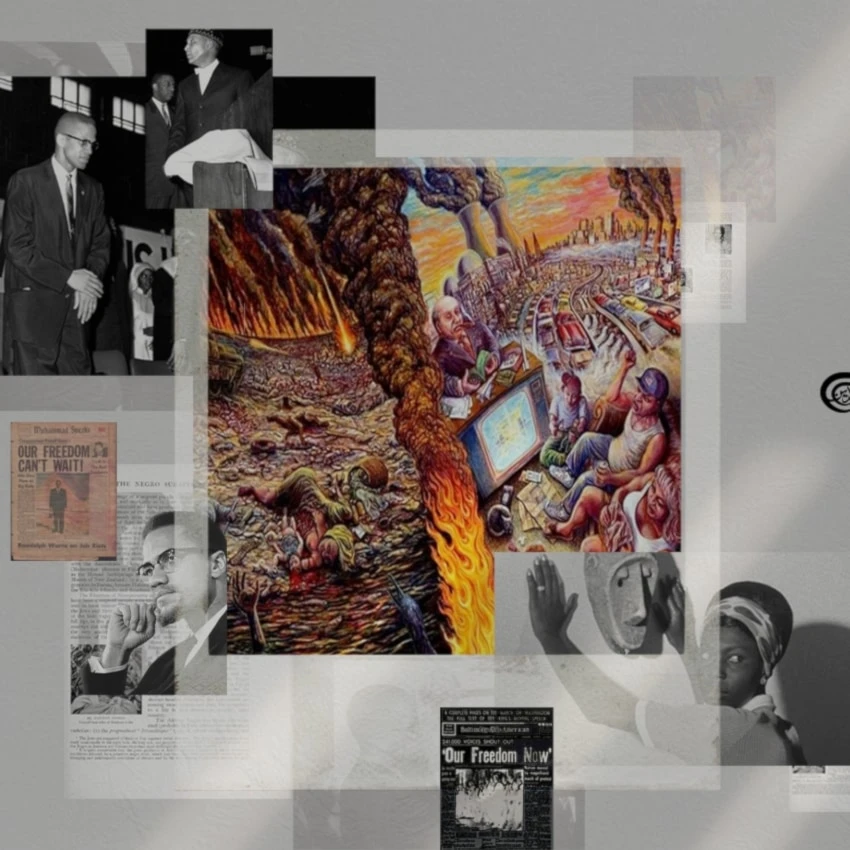Modi’s visit to Washington D.C. and the Blanket Approval of Hindu Supremacy
In many ways, the Biden administration’s endorsement of Modi’s narrative mirrors the doctrine followed by the preceding Trump administration.
-

It is quite ironic that the so-called, two largest democracies in the world have opted to pursue engagement in the absence of any reflection on unfolding domestic dynamics within India
Indian Prime Minister Narendra Modi is a controversial, divisive and polarizing figure. His history is awash with his role as a member of the ultranationalist, Hindu supremacist, Rashtriya Swayamsevak Sangh which orchestrated the murder of Mahatma Gandhi, shortly after India gained independence. As Prime Minister, his control over Indian politics is characterized by crass authoritarianism and muzzling out the opposition in what is supposed to be the world’s largest democracy. His trip to the United States in 2023 and his subsequent endorsement by US President Joe Biden however, is a grand example of the United States turning a blind eye majoritarianism in India under the Bharatiya Janata Party.
The debate over Modi’s involvement as Chief Minister during the Gujarat Riots of 2002 which resulted in hundreds of Muslims being massacred in broad daylight, is an integral and controversial part of Indian discourse. The massacre which is frequently described as a pogrom or state sponsored genocide by many academics and scholars indicated that Modi actively endorsed Hindutva vigilantes murdering women and children in the absence of active state intervention. Fast forward to 2023, then India under his Prime Minister ship continues to witness majoritarianism with minorities being frequently targeted over conspiracy theories such as ‘Love Jihad’, purported demographic changes and the consumption of beef.
His denial that minorities are being systematically targeted belies documentation of rights advocates. Amnesty International and Human Rights Watch for example have called out alarming instances of Islamophobic violence, discrimination and hate crimes against Muslims within India throughout Modi’s tenure. Additionally, the BJP’s ideology of subjugating citizens who are non- Hindu and pursuing Hindu supremacy as state policy continues to be solidified as India witnesses declining press freedoms, democratic backsliding and increased centralization of power. The United States which has until recently, repeatedly questioned India’s human rights record was notably silent at the official level. The truth is that Modi’s 2023 visit was met with little more than a mild protest from former Democratic President Barack Obama, who was subsequently silenced, censured and castigated by the BJP for his own controversial record of bombing Muslim countries.
Then comes the Biden Modi joint statement of 2023 which is a cause for further concerns. Despite rendering thousands of sacrifices in the war on terror with terrorism haunting its political landscape today, Pakistan was conveniently demonized in the statement and labeled as a state sponsor of terror. By doing so, the United States turned a blind eye to extensive counterterrorism cooperation with Pakistan which has existed for over a decade. Instead, the Biden administration toed the line of India’s baseless and politically motivated agenda to malign Pakistan and assert its dominance and democratic credentials in the region. Expectedly, Islamabad issued a sharp demarche to the joint statement urging the United States to refrain from unwarranted, one sided and misleading narratives. Yet despite Pakistan’s status as a major non-NATO ally of the US, the decision to partake with the Indian narrative has only divided South Asia.
In many ways, the Biden administration’s endorsement of Modi’s narrative mirrors the doctrine followed by the preceding Trump administration. Back then, Donald Trump openly backed Modi and ignored Hindu supremacy which is anchored in the ideals of demagogues such as M.S. Golwalkar who stated that all non-Hindu residents of India are quintessentially foreigners. Donald Trump’s 2020 visit to New Delhi also coincided with the Delhi riots of 2020 where hundreds of Muslims were attacked for protesting against India’s controversial Citizenship Amendment Act.
Then comes the prioritization of prioritizing geopolitics over principle. The United States with its controversial ‘Indo- Pacific’ strategy continues to seek militarization in the Asia Pacific region and target China for its alleged expansionism in regions such as the South China without citing concrete evidence. By doing so, the Biden administration has opted to pursue its narrow, parochial interests at the expense of human rights both globally and regionally.
It is quite ironic that the so-called, two largest democracies in the world have opted to pursue engagement in the absence of any reflection on unfolding domestic dynamics within India. The BJP is seeking to solidify its hold on power by marketing its efforts of cosmetic economic prosperity. Despite India’s impressive economic record and status as one of the largest economies in Asia, under the Modi regime, it continues to face rising income inequality, disillusionment among minority groups, rural agitation, communal violence such as that of Manipur in 2023 and protests by farmers. The oppressive and discriminatory nature of Modi’s policies is also a contributing factor to the revival of the Khalistan movement which held its referendum in places such as Melbourne, Australia for greater self-determination for the Sikh population in Punjab.
The Khalistan movement which was predicated upon discrimination against the Sikhs during and after Operation Blue Star in 1984 by the Indian National Congress is now openly agitating against the Modi government through diasporas abroad. This is due to elitism in Hindu majority regions across India denying the time and space for minorities to exercise their rights within the country. The Modi regime has so far not sought to bury the hatchet of its controversial past by Instead it has sought to deeply polarize and divide the country on religious lines.
Yet the Biden administration’s endorsement of Narendra Modi is both a reality and a tragedy for human rights, inclusion, and religious tolerance.

 Hamzah Rifaat
Hamzah Rifaat
 5 Min Read
5 Min Read











